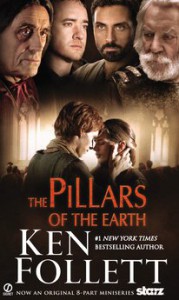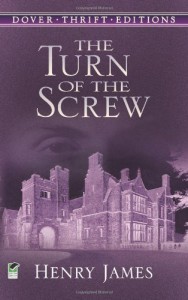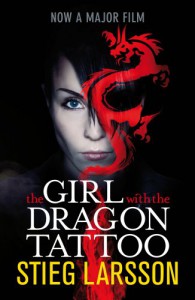
I've read this book two days ago, and I still do not know what exactly to think about it. My colleagues at work are delighted by The Pillars of the Earth, while I am not, not really. I'll list three... no, four main reasons why, but before that, if you haven't read the book, I must say novel is perfectly OK as entertainment, therefore read it as such, and skip my rant below if you do not want to spoil the pleasure of reading.
One... The story, the idea itself is good. The way it develops throughout the book is neat, it's obvious the author took great effort in keeping the story in the line, BUT it seemed more like Spanish soap-opera than anything I have seen before. Here we have good and evil characters, that do not change not even a little bit, no matter what happens, that it sometimes bordered with stubborn idiocy, for both sides. Although I must admit I loved the character of prior Philip.
Two... The descriptions. I accepted that the author doesn't know to describe more than a blushingly red cheek of the character, but it annoyed me after a while. Also, the author tended to repeat himself quite a lot, describing the events that happened before again and again. I know that the purpose of them was to depict the character's reminiscences of them, but hell, every time it looked like the intro to the TV-episode - What happened before... Those paragraphs simply were superfluous, because his writing was simple enough that the reader doesn't need to be reminded of anything again. And again...
Three. The explanations. One thing really irritated me. The tendency of the writer to EXPLAIN everything that seems to be unusual to the modern reader, while it was quite common in the middle ages. For an example, he felt the need for explaining why one carpenter brought whole his family to work on the cathedral. What a surprise - they were all some kind of carpenters, woodcutters, etc, and that was outrageous evidence of nepotism. The very idea of the word nepotism was I believe unknown back then, as this was the way things worked then -- it was more rule than an exception that the sons inherited the business of their father, or went to work on something similar, so as to obtain the job available as soon as possible. Maybe I am wrong. Maybe I should have been taught by the author that it was not normal even in medieval times. But I would rather prefer that he left it unsaid, as some other things also said, because I think that the comments from the modern perspective destroy every effort of the writer to transfer the reader to the times he is writing about.
Four. The sex and religion. Yes, both in the same sentence, because those are two subjects the author specifically mentions in his foreword. He admits that he doesn't know much about the religion. Indeed, that was painfully obvious while reading the book. First of all, the main bad guy kept doing really evil things because the priests kept forgiving his previous evil doings. And he felt the fear of hell only after being reminded of it, but anyway forgot it after the confession. WTF??? No one, however big idiot might be, can believe in such a thing. There's no priest who can erase such huge sins as he committed. Dumb, dumb, dumb. Also, the writer randomly depicted the bad priests as god-fearing, although they did very very bad things. That's contradictory in itself, and one do not have to be a man of faith to know that such acts definitely do not lead to the stairs of heaven. Ah, I almost forgot sex. Celibacy is something the author does not understand, and he even said in one sentence that the priests cannot understand what a love is between man and woman, because they do not know what is it. That's foolish to say, although the priest wouldn't literally know what it means, he is not blind nor entirely void of the emotions love can cause. Love has many forms, not only sexual ones. We are today too often witnesses of what happens when the sexual tension between partners wanes. Therefore, I consider it foolish of the author to base the love between main characters on the physical looks and the sex.
Oh dear. I never wrote such a long review before, I must stop here. Sorry for ranting.
 I admit when I picked this story, I had no idea that it would be so entertaining. The first time I heard about it was on the screen watching Disney's The Adventures of Ichabod and Mr. Toad (1949). Few years later in cinema I came across Tim Burton's Sleepy Hollow (1999). Both versions were awesome, but after seeing the latter one, I was really confused because it presented the plot completely different from Disney's one. It took some efforts, but I found also Jeff Goldblum's The Legend of Sleepy Hollow (1980). Now after reading the actual legend, I see that all the three celuloid versions differ from each other and from the story itself, Disney's the least, but all of them anyway retain the humorous nature of the legend, and I love them all.Irving's peculiar, mocking verbosity was really amusing. Couple of times I even gave a hearty laughter for the shrewdeness of Irving's remarks. Although some words might require a dictionary - some were totally obscure to me - I would gladly recommend this almost-but-not-really spooky story to children as well as to adults.
I admit when I picked this story, I had no idea that it would be so entertaining. The first time I heard about it was on the screen watching Disney's The Adventures of Ichabod and Mr. Toad (1949). Few years later in cinema I came across Tim Burton's Sleepy Hollow (1999). Both versions were awesome, but after seeing the latter one, I was really confused because it presented the plot completely different from Disney's one. It took some efforts, but I found also Jeff Goldblum's The Legend of Sleepy Hollow (1980). Now after reading the actual legend, I see that all the three celuloid versions differ from each other and from the story itself, Disney's the least, but all of them anyway retain the humorous nature of the legend, and I love them all.Irving's peculiar, mocking verbosity was really amusing. Couple of times I even gave a hearty laughter for the shrewdeness of Irving's remarks. Although some words might require a dictionary - some were totally obscure to me - I would gladly recommend this almost-but-not-really spooky story to children as well as to adults.






















